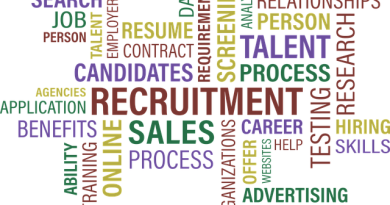4 Questions To Determine If You Need An HRIS Software
A new report says the market size of HR technology will reach a staggering $41 billion by 2022, out of which around $4.5 billion belongs to the Asia-Pacific region, with India having a large bite in it! No doubt HRIS software is the new craze—and the need of the new employment horizon too!
But should you take a dip in this new trend?
Let’s have a look at what is HRIS and does your company need it too!
What Is HRIS?
HRIS stands for Human Resources Information System.
HRIS is software that automates the entire HR policies and processes. This reduces time spent on manual operations and helps HRs devote more time to meaningful interactions and reports analysis.
It automates all HR processes like payroll, recruitment, performance tracking and rewarding, attendance and leaves entitlement, workforce lifecycle management, and everything around it!
4 Questions To Determine If You Need HRIS Software?
If you, too, like so many businesses around, are thinking of installing a suitable HRIS for your company, but do not know whether you really need it, here are a few questions that can help you clear your thought process!
Q1: How Many Employees Does Your Company Has?
There are three options now:
- Lesser than 50
- 50-300 Employees
- More than 300 Employees
If you lie within the second or third option’s range, you certainly need an HRIS. Schedule a meeting with your HR department and chalk out the core challenges and requirements you might need in your ideal HRIS.
HR tech for an organisation below 50 might not be urgent because it is easier for HRs to process manually for that number. HRIS annual costs mighty not save you anything but only be an overhead.
While for larger organisations, HR processes become more complex and tedious. Here, an HRIS can save you some bucks in HR operations and lead you towards better employee satisfaction, lesser errors, and better optimisation of policies through employee data analysis.
Q2: How Often Do You Hire And How Many Open Jobs Do You Have?
Again, your three options are:
- We are not hiring, nor do we plan to in the near future.
- We open hiring once every six months and currently have around ten jobs open.
- We are growing fast and employ every month. Currently, there are about 20 positions open.
If you lie within the second or third category, you must consider an Applicant Tracking System. Going further, if your answer to the previous question was also 2 or 3, you might want to get an HRIS with applicant tracking software.
Q3: Does Your Company Has 50+ Employees, And Do You Give Them Time-Off/Time-Based Pay?
And your options are:
- Yes?
- No?
If it’s a yes, you must consider an HRIS and if otherwise, then an HRIS might only be an overhead for you.
You can configure an HRIS according to your leave and payroll related policies. The software will take care of the employee’s attendance, overtime, arrears and leaves.
It will not only automate the entire leave granting process, but its payroll module will automatically grant the right salary to the employee within a matter of a few minutes.
Q4: Are Your Onboarding And Recruitment Process On The Complex Side?
The options for this final fourth question are as follows:
- Yes?
- No?
If you answered yes, then an HRIS can be a good move. An HRIS can help you standardise and automate onboarding tasks like sending the employee handbooks, pre-boarding engagement about the company culture and offer letter, etc.
Moreover, automatise the whole recruitment process from raising the request for staff requirement to assigning the interviewee to scheduling interviews and then finally sending them the offer letter.
Also Read: How To Pick The Best HRIS Software in India?
How Do You choose An HRIS Software?
If you have decided on taking the leap, here are a few general steps to guide you. However, the process is quite agile, but you can take help from the below ideas.
- Sit with your HR managers, and identify the problems with your HR processes.
- Brainstorm which of these can be tackled by an HRIS and how.
- Now, have a ready checklist of your required HRIS features
- Gauge various vendors against these requirements.
What Qualities Should You Look For In An Ideal HRIS?
Though the choice of an ideal HRIS is highly subjective, here are a few general qualities every company must look for.
- Can grow with the organisation’s increasing employees and more complex policies
- It stays affordable as the plans widen
- They provide exceptional support and product training
- They keep innovating and strive for the better and the best
- Preferably has a cloud solution.




